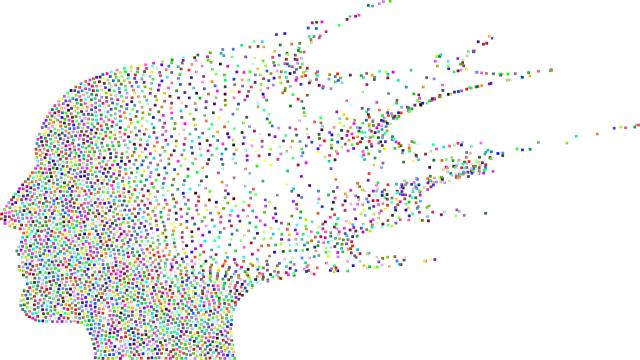Depression, a serious mental health issue, can be mitigated through various strategies. Broomfield Dissociative Disorder Therapy (BDDT) offers a specialized treatment for depression by addressing dissociation and its root causes, enhancing self-awareness and emotional regulation. Physical activity, balanced nutrition, sleep, social connections, and building self-confidence are key lifestyle modifications to prevent and manage depression. A robust support network, including therapy and participation in Mind Over Matter principles, exercises, and support groups, further strengthens mental well-being. Seeking professional help like BDDT's CBT and IPT is crucial for recovery, offering evidence-based approaches and tailored interventions for a healthier future.
Depression affects millions, but with proactive strategies, prevention is feasible. This comprehensive guide explores various tools to combat this insidious condition. We delve into understanding depression’s root causes and its far-reaching impact on daily life. Discover innovative approaches like Broomfield Dissociative Disorder Therapy, offering unique perspectives for healing. Additionally, learn about lifestyle modifications, the power of support networks, and available professional treatments. Equip yourself with these strategies to promote mental wellness and avoid depressive episodes.
- Understanding Depression and its Impact
- Broomfield Dissociative Disorder Therapy: A Unique Approach
- Lifestyle Changes for Better Mental Health
- Building a Support Network
- Professional Help and Treatment Options
Understanding Depression and its Impact

Depression is a complex mental health disorder that significantly impacts an individual’s daily functioning and overall well-being. It goes beyond fleeting feelings of sadness or loneliness; it’s a persistent state characterized by intense emotional pain, loss of interest in activities once enjoyed, changes in appetite and sleep patterns, and even thoughts of death or suicide. The impact extends beyond the person affected, impacting their relationships, work, and overall quality of life. In severe cases, depression can lead to disability or even fatal consequences, making early intervention and long-term management crucial.
Broomfield Dissociative Disorder Therapy, a specialized form of treatment, offers hope for those struggling with depression. This therapeutic approach focuses on helping individuals integrate fragmented thoughts and memories, promoting emotional stability and overall mental health. By combining evidence-based practices and personalized care, therapists facilitate a journey of self-discovery and healing. Additionally, Mental Health Education Programs Design can empower individuals to recognize early signs of depression, while Stress Management Workshops Organization provides practical tools for coping with daily stressors, preventing relapse, and fostering resilience. Community Outreach Program Implementation plays a vital role in breaking the stigma associated with depression, encouraging open conversations, and ensuring that support is accessible to all.
Broomfield Dissociative Disorder Therapy: A Unique Approach

Broomfield Dissociative Disorder Therapy offers a unique approach to depression prevention by focusing on the intricate relationship between dissociation and emotional healing processes. This therapy technique recognizes that dissociation, a complex mental defense mechanism, can often be a root cause of depression and other mental health issues. By addressing these underlying dissociative patterns, individuals can develop inner strength and improve their ability to manage stress effectively.
The process involves helping clients understand and integrate disconnected aspects of their psyche, fostering a deeper sense of self-awareness and emotional regulation. Through specialized techniques, individuals learn to navigate and resolve the internal conflicts that may have contributed to their depression in the past. This holistic approach not only provides tools for managing symptoms but also empowers individuals to cultivate long-lasting resilience and overall well-being.
Lifestyle Changes for Better Mental Health

Adopting a healthy lifestyle plays a pivotal role in preventing and managing depression. Simple yet effective changes can significantly impact one’s mental well-being. Engaging in regular physical activity, maintaining a balanced diet rich in nutrients, and prioritizing adequate sleep are essential pillars of mental health care. These habits not only reduce the risk of depression but also serve as powerful tools for individuals already dealing with symptoms. For instance, exercise releases endorphins, natural mood elevators, while a well-nourished body supports optimal brain function.
Additionally, social connections and support networks are crucial. Building meaningful relationships through social skills training and community engagement can foster a sense of belonging and purpose. Public awareness campaigns development around mental health encourages open conversations, reducing the stigma associated with seeking help. Moreover, activities that enhance self-confidence, such as setting achievable goals or learning new hobbies, can empower individuals to confront depressive episodes more effectively. Integrating these lifestyle modifications into one’s routine is a proactive step towards a happier and healthier mind, even for those managing conditions like Broomfield Dissociative Disorder Therapy.
Building a Support Network

Building a strong support network is a pivotal strategy in preventing and managing depression. This includes reaching out to friends, family, or even professional therapists who can offer a listening ear and provide guidance. In Broomfield, dissociative disorder therapy has shown remarkable success in helping individuals cope with complex emotional issues by utilizing Mind Over Matter principles. By fostering meaningful connections, you create a safety net that can catch signs of burnout early on, allowing for prompt intervention.
Engaging in self-awareness exercises and regularly practicing open communication can further strengthen this network. These activities not only promote overall mental well-being but also equip individuals with the tools to navigate life’s challenges more effectively. Additionally, participating in support groups where shared experiences create a sense of belonging can significantly contribute to preventing and managing depression.
Professional Help and Treatment Options

When dealing with depression, seeking professional help is a crucial step towards recovery. Broomfield dissociative disorder therapy, among other specialized treatments, offers effective tools to manage symptoms and enhance overall well-being. Therapists equipped with the latest techniques can provide tailored interventions, addressing the unique challenges each individual faces. From cognitive-behavioral therapy (CBT) to interpersonal psychotherapy (IPT), these evidence-based approaches have proven successful in improving mental health awareness and fostering positive changes.
Crisis intervention guidance is a vital component of comprehensive treatment plans. It equips individuals with coping strategies for acute distress, while self-esteem improvement techniques help rebuild resilience and confidence. By combining these therapeutic modalities, professionals create a supportive environment, enabling clients to navigate their struggles and embrace a brighter, healthier future.
Depression is a complex condition, but with the right strategies, prevention and recovery are achievable. By understanding its impact and exploring unique therapies like Broomfield Dissociative Disorder Therapy, individuals can gain valuable tools to enhance mental well-being. Lifestyle adjustments, building support networks, and seeking professional help when needed provide a comprehensive approach to depression prevention. Integrating these strategies into daily life can foster resilience and improve overall mental health.














